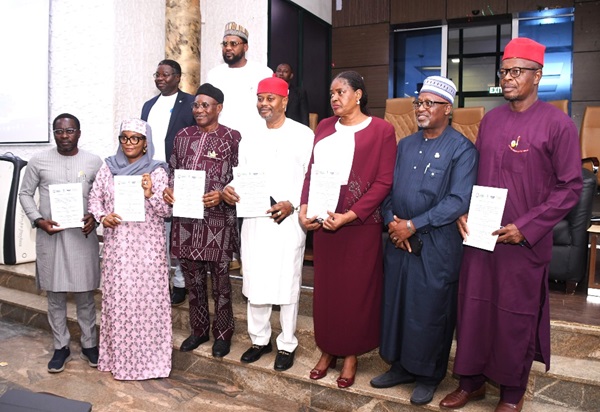
The Federal Government has declared that it will no longer tolerate the use of substandard materials in infrastructure development across the country.
The Minister of Innovation, Science and Technology, Chief Geoffrey Nnaji said on Thursday in Abuja that innovation must no longer be treated as a buzzword but as a tool for survival and national progress.
Speaking during the signing of a memorandum of understanding (MoU) on Innovation Mentoring for Climate-Resilient Infrastructure, the minister said the days of skipping geotechnical surveys or compromising professional standards were over.
“We will no longer look away when substandard materials are used, when geotechnical surveys are skipped, or when professional standards are diluted. Instead, we will monitor, inspect and act,” Nnaji said.
The MoU was signed between the Ministry and key regulatory bodies – the Council for the Regulation of Engineering in Nigeria (COREN), the Council of Nigerian Mining Engineers and Geoscientists (COMEG), the Council of Registered Builders of Nigeria (CORBON) and the technical consultancy firm, Tectonics Engineering Group.
Nnaji said the partnership was built on collaboration, aiming to institutionalise a national framework for real-time monitoring and the use of smart materials in construction. According to him, the initiative would ensure that what is built today stands the test of time and serves future generations.
He said the agreement will facilitate joint monitoring, data sharing, standardised testing, and climate-resilient construction models that would enable Nigeria to compete more favourably in the global infrastructure space.
A statement from the ministry’s head of press and public relations, Pauline Sule noted that the initiative aligns with President Bola Tinubu’s ‘Renewed Hope’ agenda, particularly in the areas of infrastructure development, economic competitiveness, and national cohesion.
Speaking on behalf of the partners, Engr. Aisha Kawu Gombe described Nigeria’s infrastructure challenge as critical and long overdue for reform. She said the collaboration would help reverse years of poor practices through the application of science, technology and innovation (STI).
She added that the partnership would also lead to the establishment of well-equipped laboratories to support sustainable socio-economic development.


